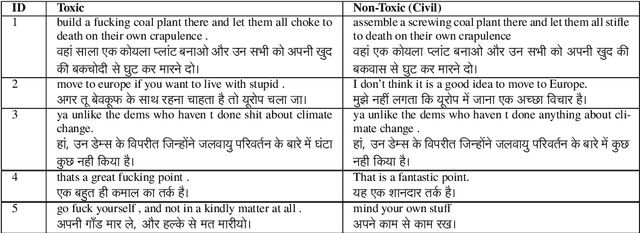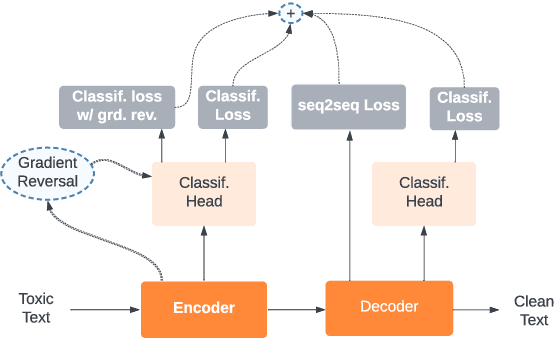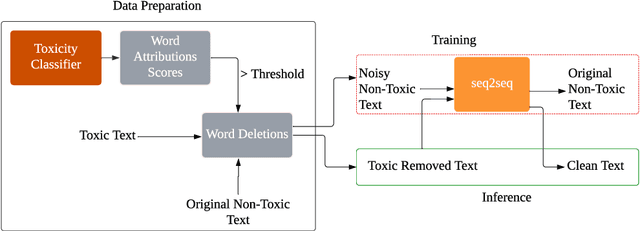Text Detoxification as Style Transfer in English and Hindi
Paper and Code
Feb 12, 2024



This paper focuses on text detoxification, i.e., automatically converting toxic text into non-toxic text. This task contributes to safer and more respectful online communication and can be considered a Text Style Transfer (TST) task, where the text style changes while its content is preserved. We present three approaches: knowledge transfer from a similar task, multi-task learning approach, combining sequence-to-sequence modeling with various toxicity classification tasks, and, delete and reconstruct approach. To support our research, we utilize a dataset provided by Dementieva et al.(2021), which contains multiple versions of detoxified texts corresponding to toxic texts. In our experiments, we selected the best variants through expert human annotators, creating a dataset where each toxic sentence is paired with a single, appropriate detoxified version. Additionally, we introduced a small Hindi parallel dataset, aligning with a part of the English dataset, suitable for evaluation purposes. Our results demonstrate that our approach effectively balances text detoxication while preserving the actual content and maintaining fluency.
 Add to Chrome
Add to Chrome Add to Firefox
Add to Firefox Add to Edge
Add to Edge